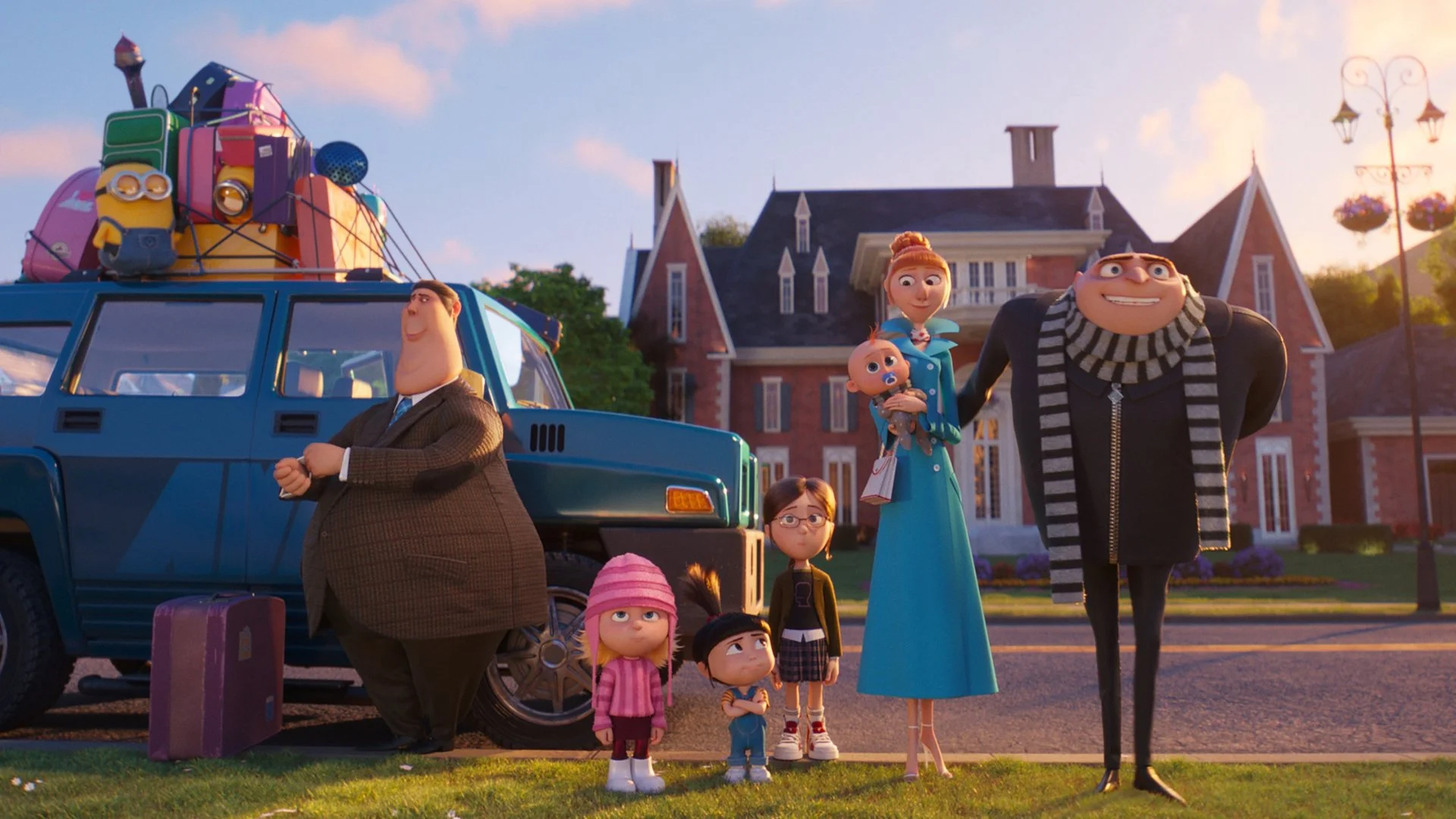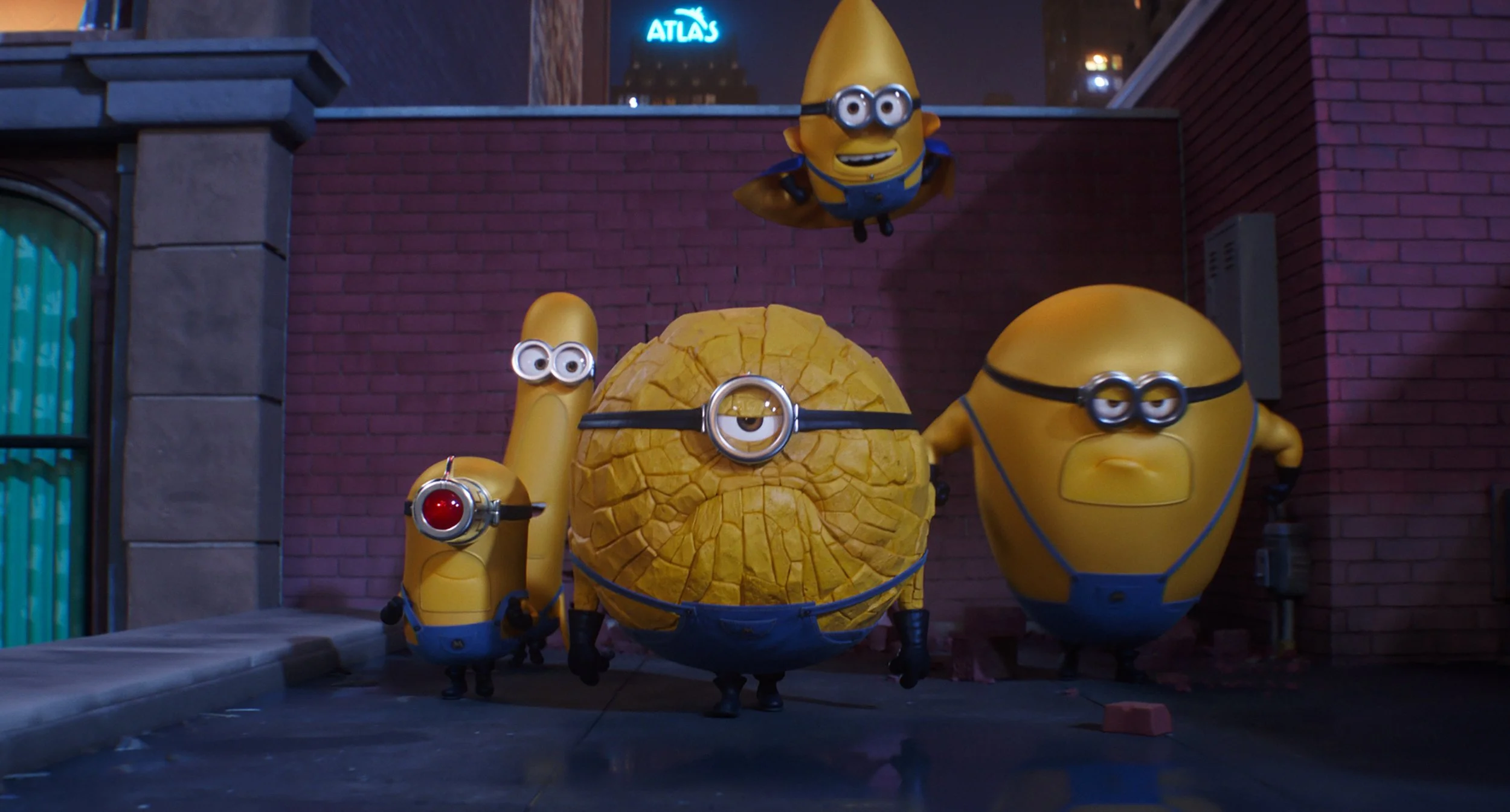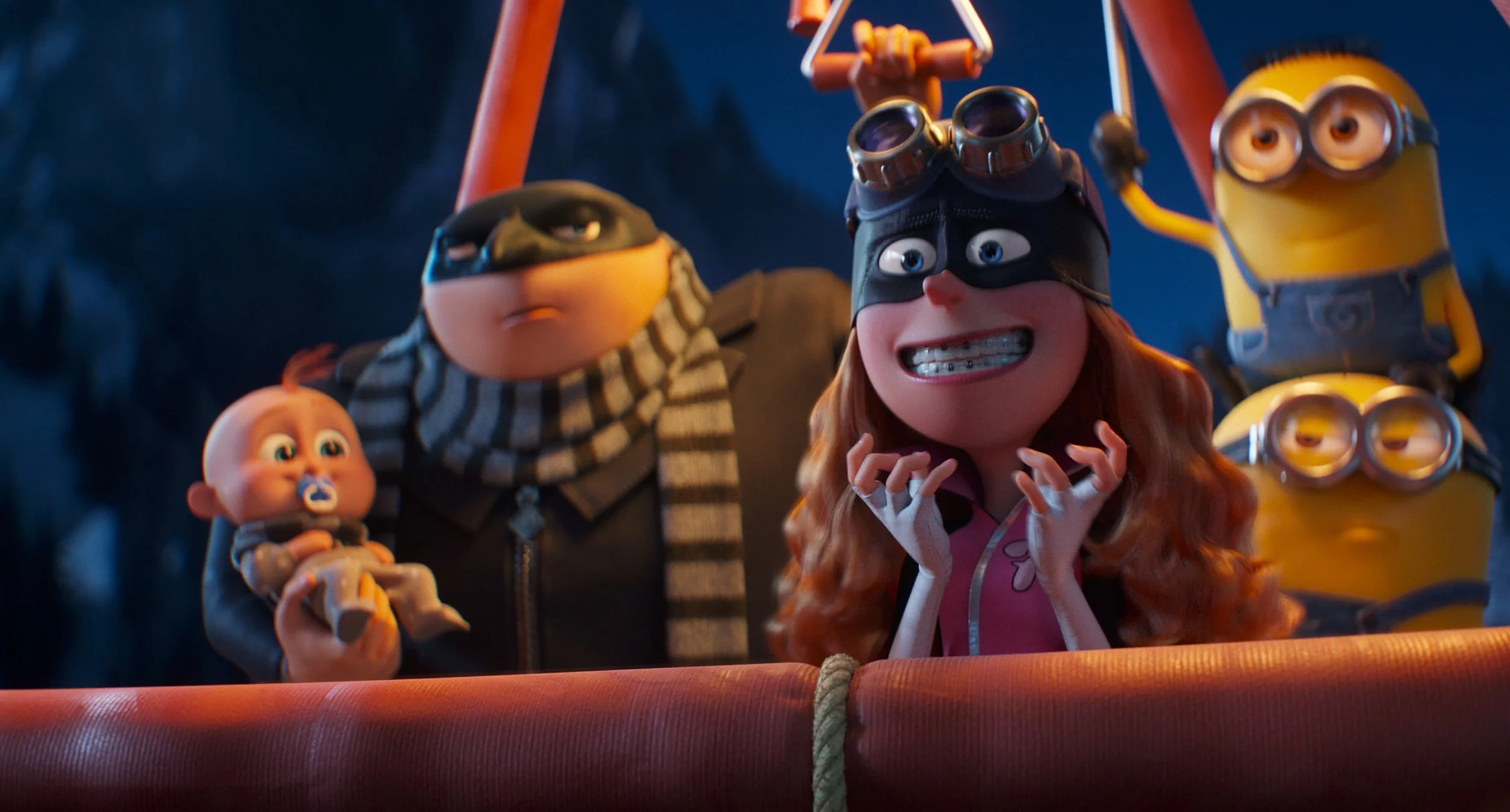'Despicable Me 4' Review: Minion Mania is Not Gru-ver Yet
Illumination’s Despicable Me has reached the point where the name sells itself. I recently came around to the series based on how cool the studio is compared to other American animation studios. They’ve gone anti-AI on main, fired shots at Warner Bros. Discovery and their project-canceling tax write-off lifestyle, and haven’t suffered mass layoffs.
I had faith going into the fourth Despicable Me installment. I assumed it would reflect the same cleverness from the marketing and the quality of their last output, Migration (which I surprisingly adored). Both movies share The White Lotus’s Mike White as a co-writer. Though DM4 is nowhere near Migration, it’s a return to form.
Photos courtesy of Universal Pictures
PG: Action and rude humor.
Runtime: 1 Hr and 35 Minutes
Production Companies: Illumination
Distributor: Universal Pictures
Director: Chris Renaud
Writers: Ken Daurio, Mike White
Cast: Steve Carell, Kristen Wiig, Pierre Coffin, Joey King, Miranda Cosgrove, Stephen Colbert, Sofía Vergara, Steve Coogan, Chris Renaud, Madison Polan, Dana Gaier, Chloe Fineman, Will Ferrell
Release Date: July 3rd, 2024
Only In Theaters
At his Lycée Pas Bon School of Villainy Class of ’85 reunion, former supervillain turned Anti-Villain League agent Gru (Steve Carell) arrests his French-accented, cockroach-obsessed arch nemesis Maxime Le Mal (Will Ferrell, doing a terrible French accent… like, Tomer Capone-type bad). Upon his arrest, Le Mal swears vengeance.
When not cracking down on villainy, Gru’s domesticated life as a husband to Lucy (Kristen Wiig), and father to adoptive daughters Margo (Miranda Cosgrove), Edith (Dana Gaier), and Agnes (Madison Polan) has expanded with his newborn son, Gru Jr. – oh yes, he procreated – who lives to torment his grumpy dad. Once Le Mal breaks out of jail with the assistance of his girlfriend Valentina (Sofía Vergara), the AVL director Silas Ramsbottom (Steve Coogan) relocates Gru and his family from their suburban home to an upscale gated community, Mayflower. Under witness protection, they become the Cunninghams and are assigned new jobs. But Gru’s next-door neighbor’s brace-faced teenager Poppy Prescott (Joey King going full Gracie Atherton-Yoo mode) recognizes Gru as the former villain he was and blackmails him into helping her with a heist involving Lycée Pas Bon.
Meanwhile, Silas reassigns the minions under his care, experimenting with a select few, transforming them into a superhero ensemble team, the Mega Minions (yay merchandising!).

With the current bleak state of feature animation where the owners of Looney Tunes – the animated slapstick pioneers – refuse to distribute their movies, Despicable Me is the last remnant of the gag-driven franchises to see a silver screen. DM4 follows in the footsteps of Minions: The Rise of Gru by massively improving upon the lazy DM3 entry and getting back to its silly, comic-oriented roots.
Chris Renaud, director of the first two Despicable Me installments, returns at the helm and his influence is felt throughout the constant output of physical humor and slapstick gags. Akin to Despicable Me 2, DM4 nicely balances between the mainline Gru family comedy and Minion shenanigans. Renaud gets good mileage from the Looney Tunes-styled antics with the Grus as fishes out of water under their witness protection plan. The “Mega Minions” idea – as thankless as it is to the plot with its transparent marketing gimmick – had several solid, absurd moments, resulting in signature Minions hilarity.
Mike White happily sips on his White Lotus upper-class haterade with the chaos the Gru family causes, clashing with the snootiness of their new surroundings. White and returning co-writer Ken Daurio – this time flying solo after splitting from writing partner Cinco Paul – finds a nice middle ground, maintaining the series' signature lighthearted charm and giving parents several surprisingly funny lines that coincide with the physical humor. Many of these are elevated by impeccable line readings from vets Wiig and Carell, and series newcomer Will Ferrell as Maxime Le Mal.

Despicable Me 4 continues its frustrating, overly convoluted, and unfocused streak, operating on an improv-minded “yes and” flow. Its relevance depends on overstuffing the world with new characters rather than doing anything remotely interesting to the ones it already has. The Son of the Mask-like “daddy vs. baby” dynamic attached as the emotional core to this entry is completely uninteresting. The creation of Gru Jr. plays more as an excuse to do some baby humor, like pee jokes while taking a page out of The Incredibles’ playbook with the “aggro baby” bit.
I’m at the big age of 26 and Gru’s gworls are the same age as they were in the first installment. While I can accept that this series is going for that stagnant age status quo, I long for the simplicity of Gru facing new fatherly challenges with them. I feel bad for Miranda Cosgrove and Dana Gaier who have been with the franchise as Margo and Edith (respectively) since day one. They have little to do in Despicable Me 4, probably sharing fewer lines than Sofía Vergara as Le Mal’s girlfriend. In their place is Joey King’s Poppy Prescott, a teenage supervillain wannabe who ultimately becomes the focus of the film’s latter half.
I don’t like how the writers penned Gru in this entry. The audience already knows Gru is a good father, but Despicable Me 4 sees him as a coward, far from the titular “despicable” he used to be. There’s a scene where a character straight-up describes him as irritable and awkward, which is accurate. Old Gru would gather his minions, and tell them to get their weapons out and go to war. New Gru is a shell of his former self.
There’s no narrative flow to the story and why even bother trying to look at it from a critical lens? As long as it makes you laugh, right? Yet I can’t help but fear that this series is veering into an Ice Age level of over-indulgent franchise fatigue. To its benefit, there’s a sense of finality to the entry. DM4’s final sequence is a nicely-tied love letter, the musical number for the Gen-Z kids who grew up with Despicable Me (myself included) and the Gen-Alpha kids who come out of the womb speaking Minionese.

Despicable Me 4 may be conceptually thin, but with its vibrant animation, well-directed action sequences, and enough silly slapstick to amuse young viewers, this fourth installment is another fun outing.
Rating: 3/5 | 60%




